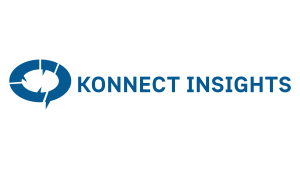Social media analytics tools are powerful software solutions that enable businesses to gather, analyze, and interpret data from various social media platforms.
These tools help organizations gain valuable insights into their social media performance, audience behavior, and brand sentiment.
With the increasing prevalence of social media in today’s business landscape, these analytics tools have become essential for any company aiming to understand and engage with its target audience effectively.
11 Reasons Why You Should Buy a Social Analytics Tool
Investing in a good social media analytics tool is crucial for businesses looking to maximize the impact of their social media efforts. Without such a tool, companies may find themselves flying blind in the vast and ever-changing landscape of social media.
By utilizing a robust analytics tool, businesses gain access to a wealth of valuable data that can inform their strategies and decision-making processes.
Here are some compelling reasons why organizations should consider investing in these tools:
- Data-driven decision making
Social media analytics tools provide businesses with access to valuable data that can inform strategic decision-making. By analyzing this data, organizations can gain insights into their target audience, competitors’ strategies, market trends, and campaign performance.
Armed with this information, they can make informed decisions regarding content creation, advertising budgets, campaign optimization, and overall marketing strategy.
- Improved customer understanding
Understanding customers is vital for any business’s success.
Social media analytics tools allow organizations to gain deep insights into customer preferences, interests, behaviors, and sentiments toward their brand. This knowledge helps businesses create more targeted campaigns that resonate with the specific needs of their audience. By tailoring content accordingly or developing buyer persona using social analytics tools or experiences based on these insights, organizations can drive higher engagement, loyalty, and ultimately, sales.
- Audience understanding and segmentation
A key benefit of social media analytics tools is the ability to gain deeper insights into the characteristics and preferences of a brand’s target audience. These tools enable businesses to segment their audience based on various parameters such as age, gender, location, interests, and online behavior.
By understanding these segments in detail, organizations can create more targeted and personalized content that resonates with their audience.
For example, a fitness apparel brand may discover through social media analytics that a significant portion of its audience consists of health-conscious individuals who are interested in sustainable fashion. Armed with this information, they can create content tailored specifically for this segment and run targeted advertising campaigns to maximize their reach.
- Enhanced brand reputation management
Maintaining a positive brand image is crucial in today’s digital landscape. Social media data analytics tools is used by businesses to monitor mentions of their brand in real-time and identify potential issues or negative sentiments. By promptly addressing customer concerns or resolving issues, organizations can protect their brand reputation and build trust with their audience.
Additionally, these tools allow businesses to identify brand advocates and engage with them in a meaningful way. Using social analytics business owners can grow their brand by recognizing and nurturing these relationships, organizations can leverage advocates’ positive influence to amplify their messaging and enhance their brand’s credibility.
- Competitive advantage
In today’s competitive business environment, gaining an edge over competitors is essential. Social media analytics tools provide businesses with the ability to benchmark their performance against industry peers. By analyzing competitors’ social media strategies, content approaches, and engagement metrics, organizations can identify gaps and opportunities that can be leveraged to gain a competitive advantage.
- Competitive Benchmarking

One of the most valuable aspects of social media analytics tools is the ability to benchmark performance against competitors. By analyzing competitors’ social media strategies and engagement metrics, businesses can identify areas of improvement and develop more effective marketing approaches.
For example, let’s consider a retail company that wants to launch a new product campaign on social media. By using an analytics tool like Fan Page Karma or Quintly, they can compare their engagement rates with those of their top competitors.
If they find that a competitor is consistently outperforming them in terms of engagement, they can dive deeper into analyzing the competitor’s content strategy, posting frequency, and audience demographics to identify potential areas for improvement.
- Cost-effective marketing strategies

Social media marketing is a cost-effective way for businesses to reach a wide audience. However, without the right tools to measure the effectiveness of these campaigns, it becomes challenging to optimize marketing budgets for maximum ROI. Social media analytics tools provide businesses with comprehensive insights into campaign performance.
Social media analytics track key metrics such as reach, engagement rates, conversions, and customer acquisition costs. This data enables organizations to allocate resources more effectively and ensure that marketing investments are generating tangible results.
- Improved campaign optimization
Optimizing marketing campaigns is an ongoing process that requires continuous monitoring and analysis. Social media analytics tools facilitate this process by providing real-time data on campaign performance. Businesses can track metrics such as click-through rates, conversion rates, and engagement levels to identify what works best for their target audience.
By leveraging these insights, organizations can make data-driven adjustments to their campaigns in real time. This agility allows them to optimize content strategy, ad targeting parameters, posting frequency, and other campaign elements to ensure maximum effectiveness.
- Real-time monitoring and agility
In today’s fast-paced digital landscape, monitoring social media conversations in real time is crucial for businesses. Social media analytics tools enable organizations to track mentions of their brand or industry keywords in real-time and respond promptly to customer inquiries or address any potential issues before they escalate.
By actively engaging with customers on social media platforms in real time, businesses can strengthen customer relationships and manage brand reputation effectively. They can detect emerging trends or topics that are gaining traction among the target audience and adjust their marketing strategies accordingly.
- Ease of comprehensive reporting
Social media analytics dashboards simplify the process of generating comprehensive reports that provide a holistic view of a brand’s social media performance. These reports consolidate data from various social media channels and present them in a visually appealing and easy-to-understand format.
By utilizing these reports, businesses can quickly identify key performance indicators, measure the success of their marketing campaigns, and make data-driven decisions. This saves time and effort that would otherwise be spent on manually gathering and analyzing data from multiple platforms.
- Influencer identification
Identifying influencers who can amplify brand messages and reach a wider audience has become integral to many marketing strategies. Social media analytics tools offer features that help brands identify and evaluate potential influencers based on follower count, engagement rates, and relevance to the brand’s industry.
By leveraging these tools, organizations can collaborate with influencers who align with their brand values and have an established presence among their target audience. This enables them to tap into new markets, increase brand visibility, and drive engagement.
Conclusion
Investing in a good social media analytics tool is essential for businesses aiming to thrive in the digital age. These tools provide organizations with valuable insights that drive data-driven decision-making, enhance customer understanding, protect brand reputation, gain a competitive advantage, optimize marketing strategies, and improve overall campaign performance. By leveraging the power of social media analytics tools, businesses can unlock the full potential of their social media efforts and stay ahead of the competition in today’s fast-paced digital landscape.






























